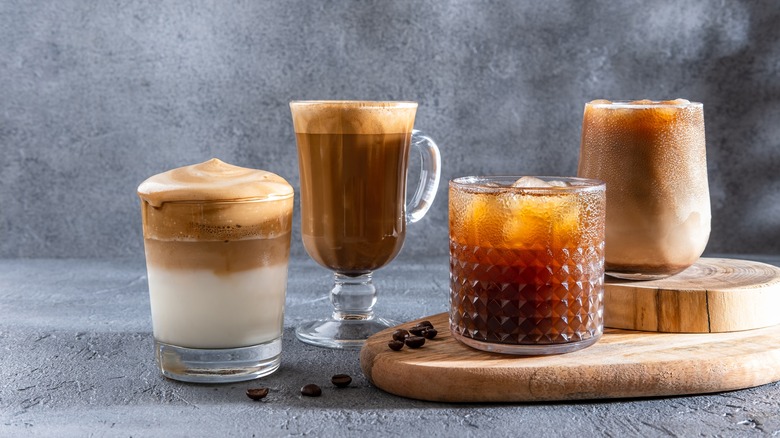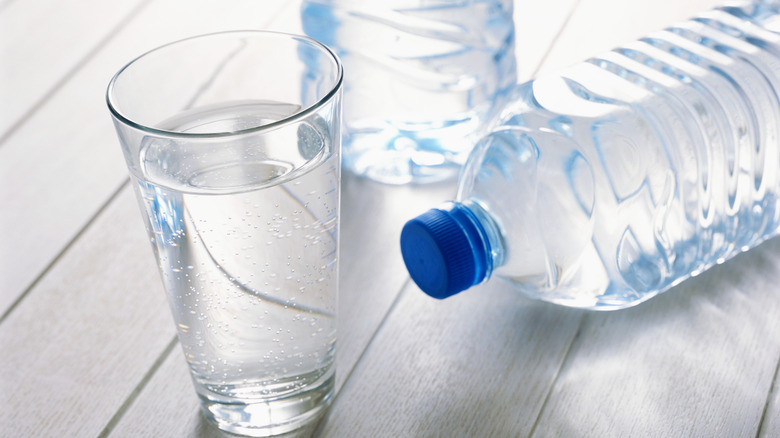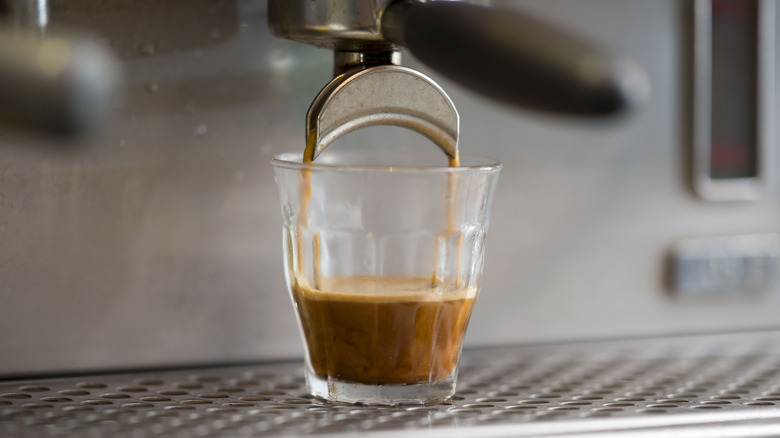Hard Water Vs. Soft: Which Should You Use To Brew Coffee?
To some of us, the factors that determine what makes a good cup of coffee might come down to the kind of milk a barista uses (dairy, soy, almond, or oat) and the kind of syrups you might choose to add. But those who view coffee in a different light say the elements that result in a good cup of coffee are far more complex than that because there are more variables than meet the eye.
Coffee connoisseurs have a different set of metrics for what they think makes a good cup of coffee. These include the way a cup smells or its aroma and the way it tastes, which can vary from citrusy to chocolatey. Coffee experts pay attention to how acidic a cup of coffee is, and whether it is light, medium, or full — a quality also known as "body." And all these factors are determined by the kind of beans and the water you use to brew your coffee.
Why the kind of water you use is important to your coffee
While you could argue that determining the quality of good coffee is subjective, most will agree that coffee is at its best when it smells alluring, when its flavor isn't just bitter but carries a variety of taste experiences. Good coffee will be either smooth and mellow or bright and crisp, and it will have an aftertaste that can be light or bold.
It shouldn't be surprising that water is an essential ingredient for good coffee — after all, it makes up more than 98 percent of your cup of java, and water is more than just the H₂O we all learned about in basic chemistry class. The taste and quality of drinking water are determined by where you are, as well as what minerals and chemicals might be present in the liquid. As "Water for Coffee" author Maxwell Colonna-Dashwood notes: "Different regional and global water supplies treat water differently. Plenty of municipal treatment systems produce water which is safe to drink, but it may not necessarily be good quality."
To complicate matters further, Colonna-Dashwood points out that "high-quality water" may not be the best for good coffee, because of the volume of elements it contains. For instance, good bottled water like Evian contains higher quantities of minerals that can mess with the flavor of your coffee.
The kind of water that works best with your coffee
But most of us don't make water choices based on factors that include TDS (total dissolved solids) — these include magnesium, calcium, sodium, potassium, and chlorides among others. Neither do we agonize over our water's pH, and both are details that many coffee experts look at. All we really want to know is whether our coffees are best when we use filtered, purified, or distilled water. The answer to that is it depends.
If you live in an area where the water is mineral-laden and hard, no amount of filtering or purification will bring the water to a level where it can make good coffee. In this instance, using bottled water is a good option. Just make sure you look out for water that is softer or with lower mineral content.
You'll also want to stay away from distilled water because, as many coffee experts point out, coffee still needs to interact with minerals, and distilled water is essentially H₂O that's been stripped of all that. Know that using distilled water or water that is too "soft" is just as likely to give you an unpleasant-tasting brew as using highly mineralized or "hard" water will. If you really want to up your water game, Maxwell Colonna-Dashwood suggests that as a general rule, soft water works best with dark roasts and harder water with lighter roasts.


